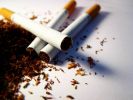EuroChem Invests in Nevinnomyssk Wastewater Treatment Facility
OREANDA-NEWS. August 3, 2010. EuroChem is implementing an investment project for the reconstruction of wastewater treatment facilities at the main pumping station at Nevinnomysskiy Azot OJSC, the company’s plant in Nevinnomyssk,
Besides runoff from the plant itself, the plant’s biochemical sewage treatment and industrial waste disposal shop accepts industrial runoff and household sewage from companies, community facilities and apartment buildings in Nevinnomyssk.
The treatment plant includes the following stages of the technological process: mechanical cleaning of sewage, physico-chemical treatment of the industrial wastewater of Nevinnomysskiy Azot, biological treatment of sewage and industrial wastewater, disinfection of treated wastewater, tertiary treatment of sewage at the station, ozonation in biological ponds, sludge treatment, and cleaning of industrial and storm sewage water.
The company’s investment project includes reconstruction of the rake room of the main pumping station in the biochemical sewage treatment and technological waste disposal shop at Nevinnomysskiy Azot. The installation of new grates and presses for compacting sediments and removing them from the rake room will increase the efficiency of mechanical and biological treatment of wastewater and the operation of the mechanical equipment of the treatment plants.
A key element of the technological chain of wastewater treatment that largely determines the efficiency of sewage treatment plants in general is preliminary mechanical treatment of wastewater using grates to capture the major pollutants in the wastewater. Inefficient mechanical treatment makes the biological treatment process (aeration tanks, biofilters) and maintenance of the equipment (pumps, mixers, filter presses, etc.) more difficult. Recently, these problems have been exacerbated because of the increasing number of solid non-biodegradable particles (plastic stoppers, plastic bags, filters from cigarettes) in wastewater.
EuroChem plans to complete the project in 2011 at a total cost of RUR 25 million.




Комментарии